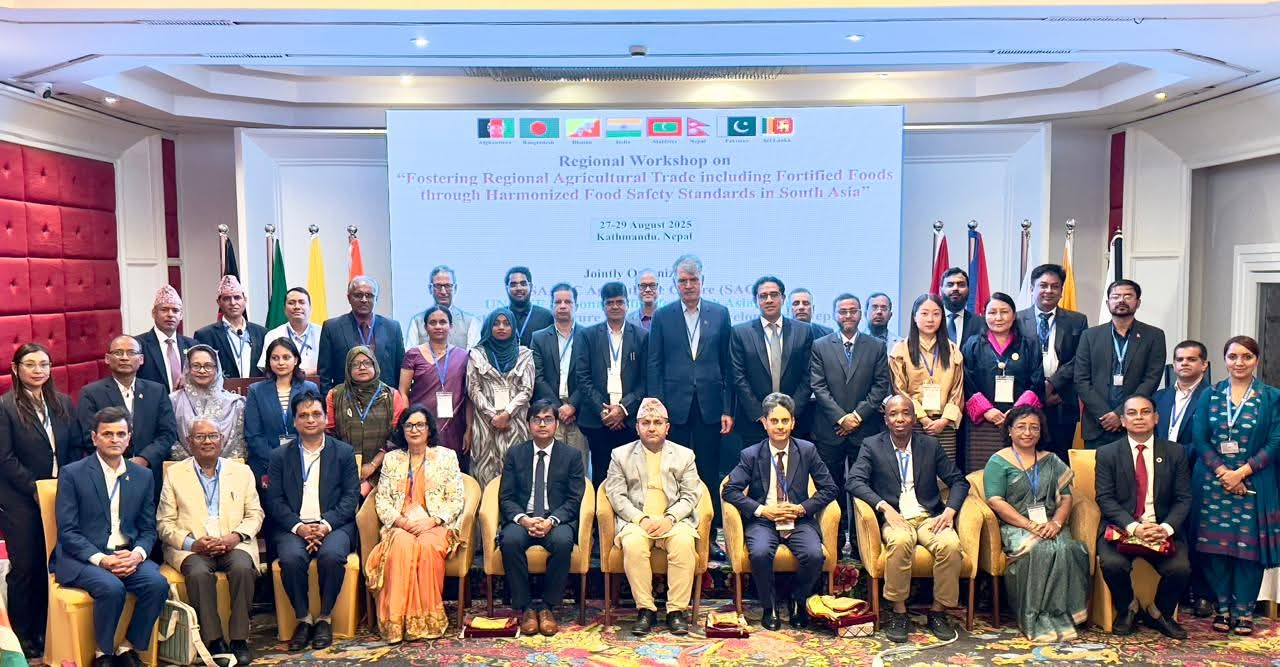Kathmandu, August 27, 2025 - A three-day SAARC Regional Workshop on “Fostering Regional Agricultural Trade including Fortified Foods through Harmonized Food Safety Standards in South Asia” began today in Kathmandu, bringing together delegates from six South Asian nations to deliberate on regional food trade and nutrition security.
The event is jointly organized by the SAARC Agriculture Centre (SAC), the Ministry of Agriculture and Livestock Development, Government of Nepal, and the UNICEF Regional Office for South Asia. Representatives from Bangladesh, Bhutan, Maldives, Nepal, Pakistan, and Sri Lanka are taking part in the workshop.
The initiative seeks to identify opportunities for harmonizing fortified food standards across the region with the twin objectives of enhancing agricultural trade and addressing widespread micronutrient deficiencies. Experts and policymakers will also work on developing a regional roadmap to ensure the quality, consistency, and scale of food fortification programmes.
Speaking at the inaugural session, Dr. Govinda Prasad Sharma, Secretary (Agriculture Development), Ministry of Agriculture and Livestock Development, highlighted the importance of collective efforts in building a robust food safety framework in South Asia. Other distinguished speakers included Mr. Tanvir Ahmad Torophder from the SAARC Secretariat, Dr. Md. Harunur Rashid from SAC, Dr. Zivai Murira of UNICEF ROSA, and Dr. Md. Younus Ali of SAC. The session was chaired by Mr. Prakash Kumar Sanjel, Director General of Nepal’s Department of Agriculture.
Delivering the keynote address, Dr. Jeevan Prabha Lama, former Agriculture Secretary of Nepal, emphasized the need for harmonization of food safety standards to boost intra-regional agricultural trade.
Around 45 participants, including government officials, technical experts, and academics, are attending the workshop. The gathering is expected to conclude with policy recommendations and a joint action plan to strengthen food fortification and advance regional cooperation in agricultural trade.